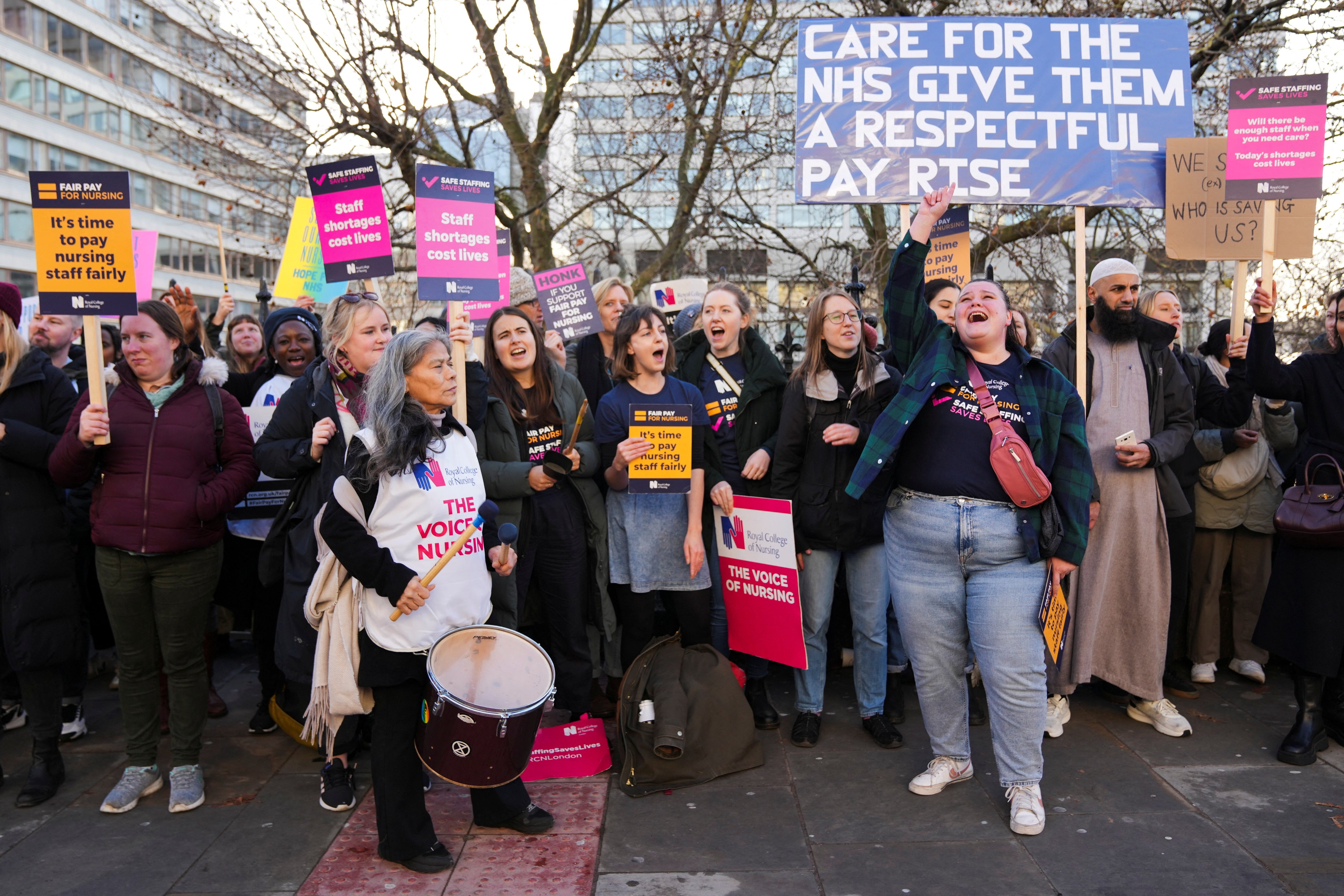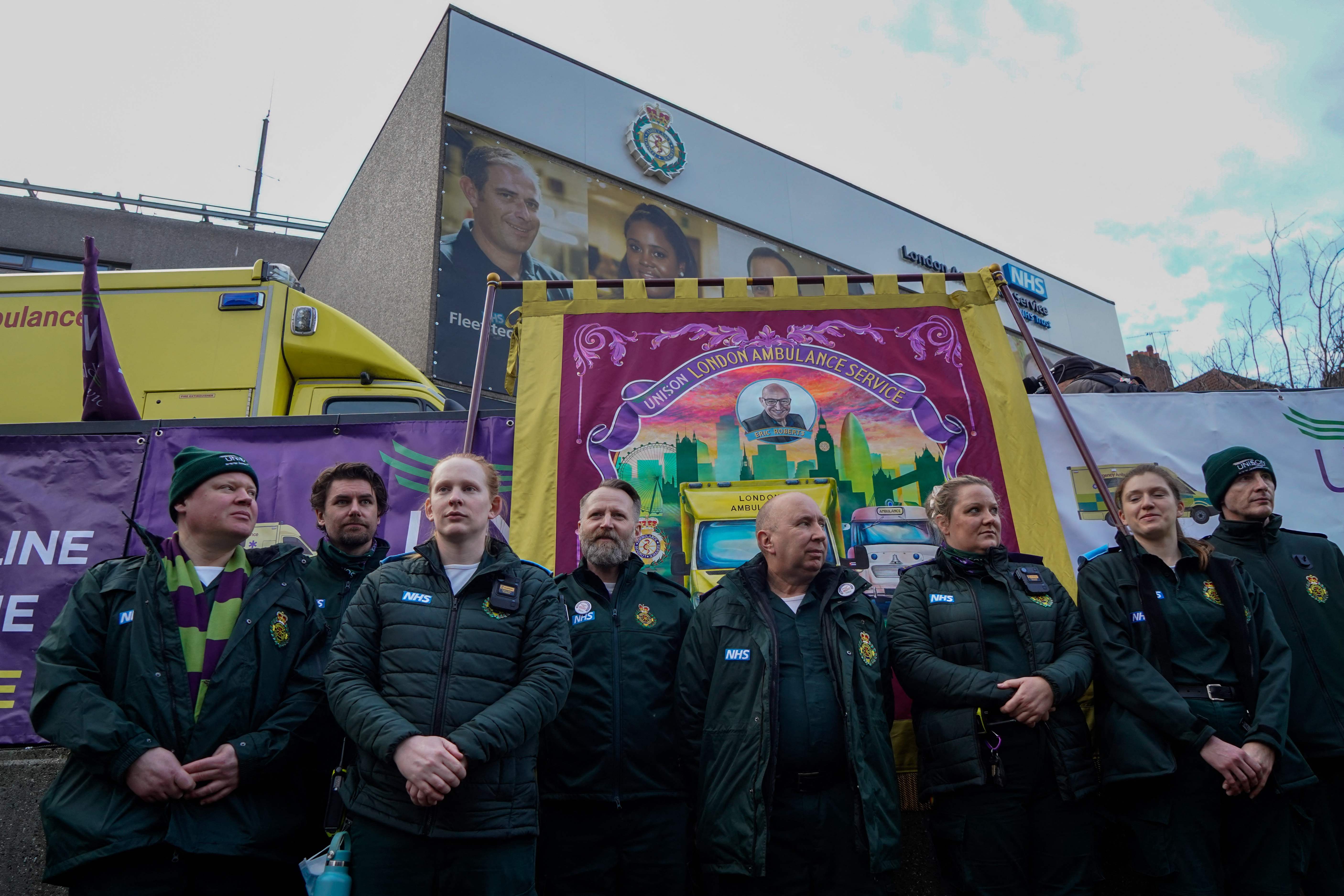
Nurses across England will strike for two days running in January in an escalation of their pay dispute with the government.
Thousands of staff will walk out on 18 and 19 January, heaping further pressure on health secretary Steve Barclay to come to an agreement with the unions.
Meanwhile, the GMB union has called off a strike of ambulance workers on 28 December so the public can “enjoy Christmas without the additional anxiety”.
They have instead announced a new strike on 11 January, the same day that ambulance workers who are members of the Unison union will also stage a walkout.
The vote for strike action comes after members of the Royal College of Nursing (RCN) held the first mass walkout in a century on 15 December.
Tens of thousands of nurses took part in the strike action, which centred on a pay dispute with the government. Picket lines were in place at dozens of hospitals and thousands of NHS appointments and operations were cancelled.
The RCN has been calling for a pay rise of 19.2 per cent - 5 per cent above inflation. Scottish nurses recently rejected a pay deal of 7.5 per cent.
RCN general secretary Pat Cullen said: “The government had the opportunity to end this dispute before Christmas but instead they have chosen to push nursing staff out into the cold again in January.
“I do not wish to prolong this dispute, but the prime minister has left us with no choice.”
The strikes will only take place in England because they “may need to be prolonged unless government finds a way to resolve this dispute”, the RCN said.
Health secretary Steve Barclay responded to the news of the strikes, saying: “While union members will not be going ahead with strikes over Christmas, we are disappointed they have announced further co-ordinated strikes in January to cause maximum disruption at a time when the NHS is already under extreme pressure.”
He added that “unaffordable pay demands of unions would mean taking money away from frontline services and cause further delays to care.”
In addition to the nurses strikes, ambulance services in England will be hit by two days of strikes on 11 and 23 January by members of Unison. These stoppages will be longer and involve more staff, the union said.

A planned strike by ambulance workers on 28 December in the GMB union was however suspended on Friday. A new strike action has instead been announced by the GMB for 11 January, meaning GMB workers will again be striking on the same day as Unision workers.
Up to 10,000 members were expected to walk out on 28 December but the GMB said they wanted the public to “enjoy Christmas without additional anxiety”.
Rachel Harrison, GMB national secretary, said: “The incredible British public are why we are suspending our action over the Christmas period.
“But, it also means the government can now do what ambulance workers and the public want - get round the table and talk pay now.”
Union officials have said that they are “escalating the action” to make it more difficult for services to operate.

One official told The Guardian: “The government seem prepared to tough it out and not offer any improvement on the £1,400. It looks like that will mean that health unions will have to take more and more strikes.
“That will start in January. It might drag on for a while. Next time, it will be harder for the NHS [to operate on strike days]. We have to make it more difficult because if we don’t cause difficulty, what’s the point?”
The general secretary of the Public and Commercial Services Union, Mark Serwotka, said the government was “missing in action” on Friday.
He said that “nobody believes” that the government cannot afford to increase public sector workers’ pay.
“Shouldn’t they do what everybody believes they should, which is get around the negotiating table and say to our NHS staff, our Border Force staff, our civil servants and everyone else, ‘We know there is a poverty crisis in this country. We are going to find some money to get through this period’?” he said.







